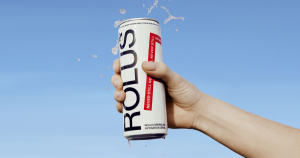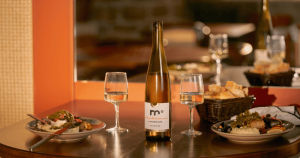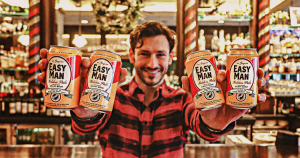If you’re a non-alcoholic beverage brand based outside the US and you want to sell in the US, this guide, Part 1 in a series, aims to help prepare you for US importing and distribution.
First, be mindful that a federal system governs the US. This means that, while many regulations are consistent at the national level, individual states and even municipalities can have their own rules and requirements as well. Be sure to refer to our forthcoming state-by-state guide as well.
1. Understand the US Regulatory Environment
- Food and Drug Administration (FDA): The primary agency regulating non-alcoholic beverages in the US. Familiarize yourself with their requirements.
- Ingredients: Ensure all ingredients are FDA-approved or Generally Recognized As Safe (GRAS).
- Facility registration: If you manufacture outside the US, you will need to register your facility with the FDA. Registration provides the FDA with important information, including the location of the processing facility, types of activities conducted, and details about the products you’re importing.
- Approval vs. review: Unlike drugs, most beverages don’t require pre-market approval by the FDA before you sell them. However, you, the brand, are responsible for ensuring that your product is safe, properly labeled, and compliant with all applicable federal laws and regulations. If someone ever determines your product is misbranded, adulterated, or otherwise not in compliance with FDA regulations, you might be subject to a recall or other enforcement actions.
2. Labeling
- The FDA has stringent requirements for product labeling that can differ from standards in other countries.
- Ingredient lists: Must be detailed and transparent.
- Nutrition facts: Must have a standardized format showing caloric and nutritional content.
- Allergen declarations: Labels must declare important allergens.
- Nutrition labels vs. supplement labels: Supplement labels must include the same nutrients as nutrition facts labels. Additionally, they must declare if they are added to the product for supplementation or if a claim is made about them.
- Any health or nutritional claims must be verifiable and compliant with FDA guidelines. Functional beverages in particular should pay close attention here.
- Ensure compliance with the US legal definitions of “non-alcoholic,” “alcohol-free,” “dealcoholized,” “beer,” “wine,” etc. if you intend to print any of them on your labels.
- Here’s a helpful guide to labeling in more detail.
3. Quality and Safety Standards
- Ensure your product meets US quality and safety standards:
- Conduct necessary product testing.
- Ensure you have a system in place for recalls if needed.
- Foreign Supplier Verification Program: All goods imported into the US for human consumption must meet the same safety standards as domestically produced beverages. The FSVP requires conducting specific steps and creating a written preventative control (safety) plan.
4. Intellectual Property
- Trademarks: Ensure your brand name and logo are trademarked in the US. We recommend Sausser Summers, PC and can introduce you.
- Patents and copyrights: If your product or its marketing materials involve unique inventions or content, consider necessary protections.
5. Market Research
- Consumer preferences: Understand US consumers’ unique tastes and preferences. Inquire about how Spirited Away and Dry Atlas can help.
- Competitive landscape: Analyze competitors and identify your unique selling proposition. Use the By Category views on Dry Atlas to assess your competition. For example, here are the world’s ~40 non-alcoholic bitter citrus aperitivi (Campari alts).
- Pricing: Research pricing models and decide on a suggested retail price (SRP) strategy in USD that aligns with your brand positioning.
6. Distribution Channels
- Familiarize yourself with the US distribution landscape:
- Understand the US’s three tier system, which governs the distribution of alcohol and influences the distribution of non-alc beverages.
- Evaluate the pros and cons of direct distribution vs. working with distributors.
- Traditional alcohol distributors vs. non-alc distributors vs wholesale marketplaces (AirGoods, Faire).
- Understand the structure and nuances of different retail environments including traditional wine and liquor stores, booze-free bottle shops, specialty stores, non-alc ecomm platforms (The Zero Proof, etc.) and general ecomm platforms (Amazon).
7. Certifications
- Consider getting your product certified if relevant: Organic, Non-GMO, Halal, Kosher, Vegan, etc.
8. Cultural Awareness
- Ensure that branding, packaging, and messaging are culturally appropriate and resonate with US consumers.
- Consult with a native American English speaker if you yourself are not comfortable with the idioms, nuances, and idiosyncrasies of the language.
9. Taxes and Tariffs
- Research potential import duties, taxes, and tariffs.
- Familiarize yourself with the Harmonized Tariff Schedule (HTS) for specifics.
- Your importer should have substantial expertise in this area, but it’s still a good idea for you to understand the basics.
10. Financial Considerations
- Understand the financial implications:
- Currency exchange rates and currency hedging, if needed.
- Payment terms typically accepted in the US.
- Any potential financial incentives or supports for imported goods.
11. Contractual Matters
- Understand typical contract terms and conditions in the US market.
- Be prepared for negotiations with potential importers and distributors.
12. Additional Considerations by Beverage Category
- Adult non-alc is an industry with a wide range of liquids that are subject to additional considerations by beverage type, like:
- Wine
- Beer
- Cannabis beverages
- Etc.
13. Laws Affecting Alcoholic Drinks
- Even when your beverages contain less than 0.5% ABV, you may still find that laws governing alcoholic drinks can impact you. Our industry is still relatively new and legacy processes and systems haven’t all caught up.
14. Stay Updated
- Regulatory, market, and consumer dynamics change. Always stay updated with relevant changes that could impact your business.
Before even making contact with an importer, brands should have a thorough understanding of the above topics, ensuring they’re well-prepared for conversations and negotiations. It’s also beneficial to seek advice from professionals or consultants familiar with the US beverage industry.
In Part 2 of our series on importing non-alcoholic drinks into the US, you’ll learn from one of the best non-alc importers, Thierry Jean of Beverage Lo-No Distribution, Inc. In that article, we discuss sales channels, importer/distributor types and onboarding new brands. Read it here: Non-Alc Importing Part 2.
For more from Douglas, follow him on LinkedIn.
Dry Atlas is a media company focused on alcohol alternatives. We deliver non-alc insights, news, and recs to over five million people annually. To stay up to date on all things non-alc, subscribe to our weekly newsletter and view our offerings for brands.






